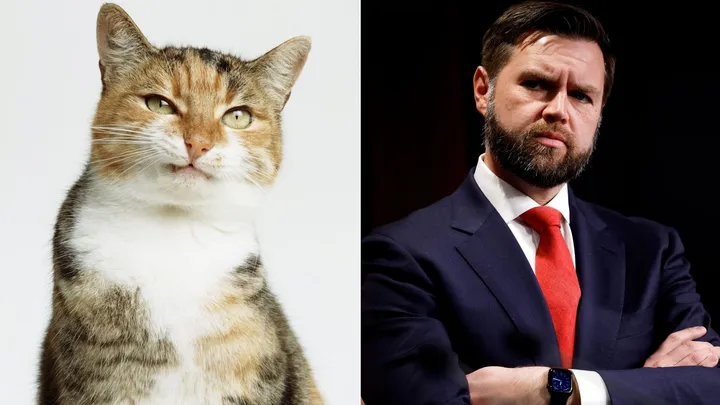Donald Trump’s running mate should be afraid of childless cat ladies.
One group JD Vance appears entirely uninterested in winning over this election season? Single women who cherish their cats.
Last week, Vance — Donald Trump’s 2024 presidential running mate — reinforced his dismissive 2021 remarks about “miserable” “childless cat ladies” influencing government decisions without having a “direct stake in” the nation’s future.
In a lukewarm attempt at damage control, Vance, a father of three, clarified last week on SiriusXM’s “The Megyn Kelly Show” that his comments were sarcastic, insisting he has “nothing against cats.”
“People are focusing so much on the sarcasm and not on the substance of what I said. And the substance of what I said, Megyn, I’m sorry, it’s true,” Vance stated, then critiqued the declining birthrate in the U.S.
Vance’s alienating stance on childless single women could backfire; about 63% of unmarried women voted for President Joe Biden in 2020. A 2021 Pew Research Center report shows that 44% of childless adults aged 18 to 49 don’t plan to have kids, and many of them are cat lovers who vote.
Vance’s peculiar disdain for childless women with cats taps into a century-old stereotype: unmarried, reclusive women living with their cats and minimal human interaction.
Interestingly, this isn’t the first time cats have been dragged into anti-feminist political rhetoric.
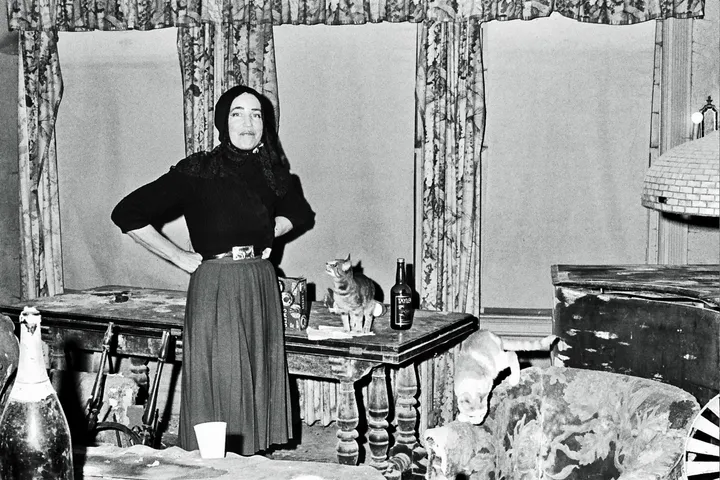
Before women gained the right to vote — in 1920 in the U.S. and in 1918 in the U.K. — anti-suffrage propaganda often used cats to portray women as ineffective voters, suggesting that their “naturally docile, weak, and feline-like tendencies” made them unsuitable for political engagement, explains Kelly L. Marino, a history lecturer at Sacred Heart University and author of Votes for College Women Alumni, Students, and the Woman Suffrage Campaign.
The underlying message was that a woman voting would be as absurd and futile as a cat casting a ballot.
One anti-suffrage postcard from that era depicts a scruffy, disgruntled cat — a symbol for what was perceived as a frumpy suffragette — holding a sign that reads, “Vote For Shes.”
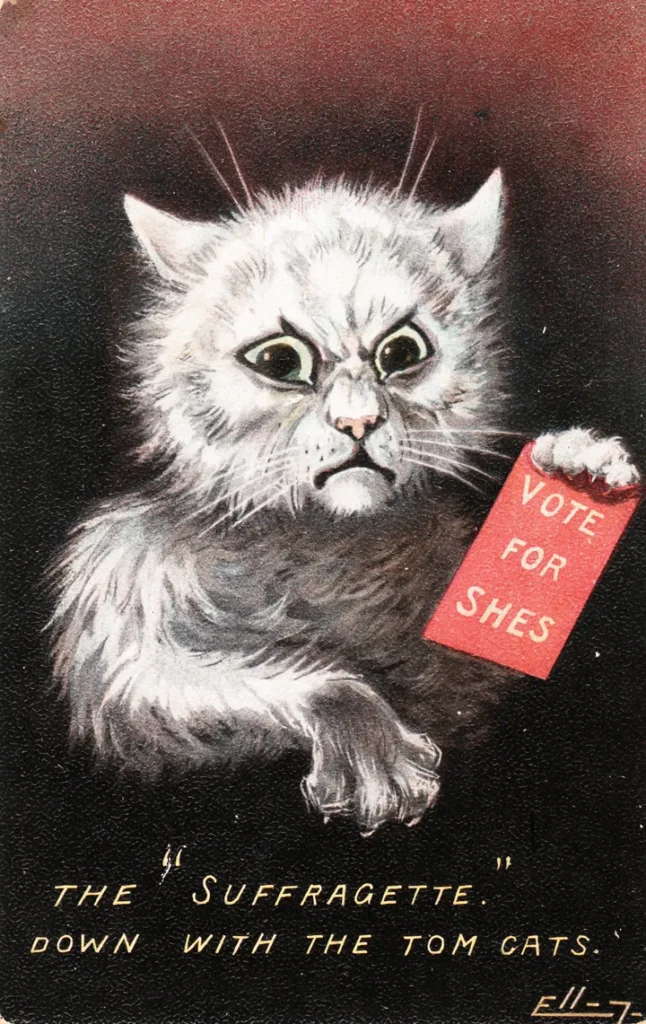
In another piece of 1915 propaganda, an emasculated, beleaguered man is shown washing laundry and tending to his child, with a cat nearby. The caption reads, “I want to vote but my wife won’t let me,” emphasizing the theme of domestic role reversal.
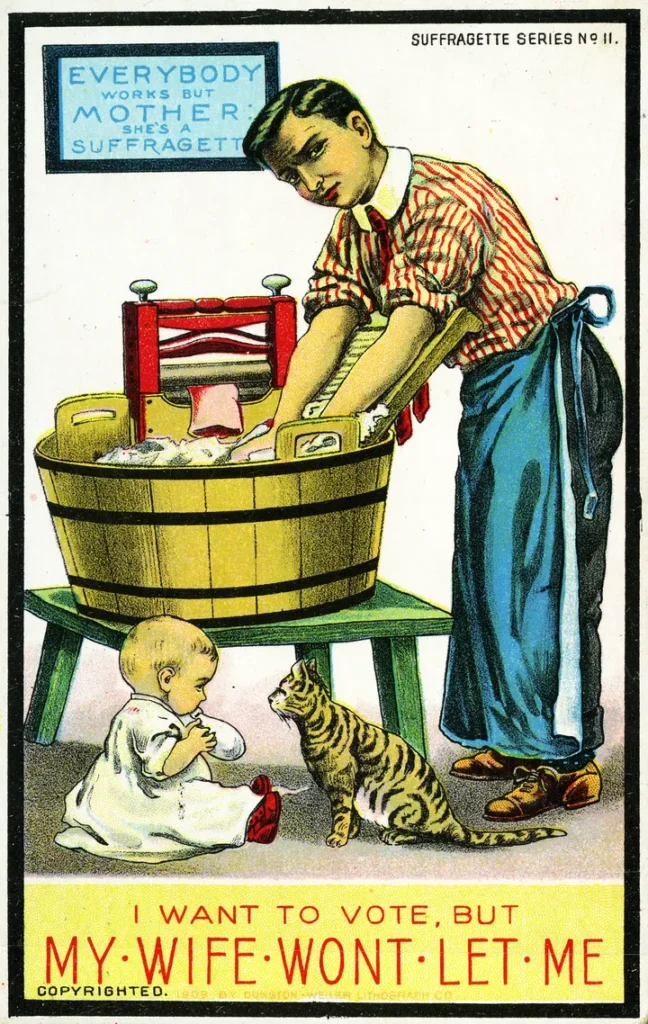
“We see the poor henpecked husband, stuck at home with the cat, because if women could vote, men would, of course, be the losers; the bedraggled cat symbolizes a defeated, battle-worn suffragist,” said Ann F. Lewis, former communications director for President Bill Clinton and owner of an extensive collection of suffragette art and paraphernalia.
Smartly, women’s rights activists reclaimed cats as symbols of quiet strength, noted Kelly L. Marino.
“Suffragists quickly turned the tables on their opponents by embracing the cat image in their propaganda, associating it instead with strength, confidence, and independence,” she explained.
Lewis believes both sides gravitated toward these animals because they symbolize independence and autonomy.
“Some people react negatively to the idea of an independent woman,” she told HuffPost.
“That was true when women fought for the right to vote, to have all the rights and responsibilities of citizens in a democracy, and it’s true today, as the two political parties present vastly different views on what women can do, including whether women can be trusted with the right to make decisions about their own lives and bodies.”
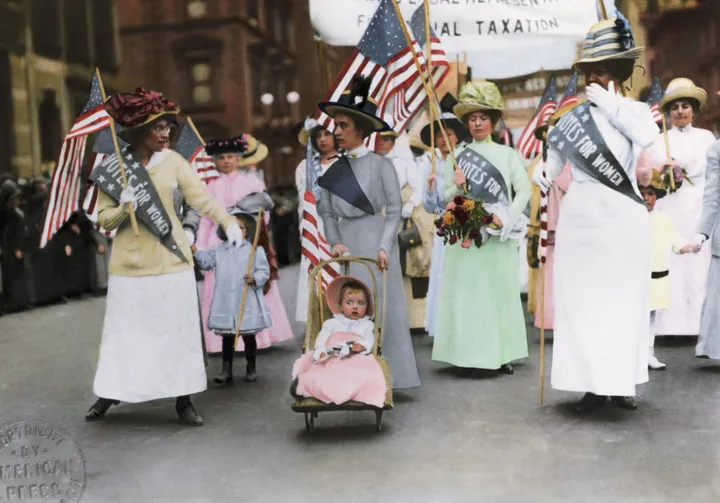
Women with cats — and the cats themselves — have been stigmatized long before the suffrage movement.
Cats have long been linked to superstitions and demonic associations, explains Diane Purkiss, a professor of English Literature at Oxford University and author of The Witch in History.
“In many witch trials, people reported seeing demon cats,” she told HuffPost. “The very first English witch trial for which we have a proper record, the Chelmsford trial of 1566, centers on women and their cats.”
At Salem, the women accused of witchcraft were mostly older than those who accused them. In England, 90% of those accused were women of menopausal age or older, according to Purkiss.
“During the witchcraft persecutions, women without husbands or children were seen as burdens on the community, often because they were poor and lacked family support,” Purkiss said.
Their bond with animals was perceived as unnatural — a disturbing replacement for both husband and children.
“To their persecutors, these women were seen as dedicating themselves to the wrong things. The stereotype of the crazy cat lady is simply a continuation of the stereotype of the witch as a postmenopausal woman living alone.”
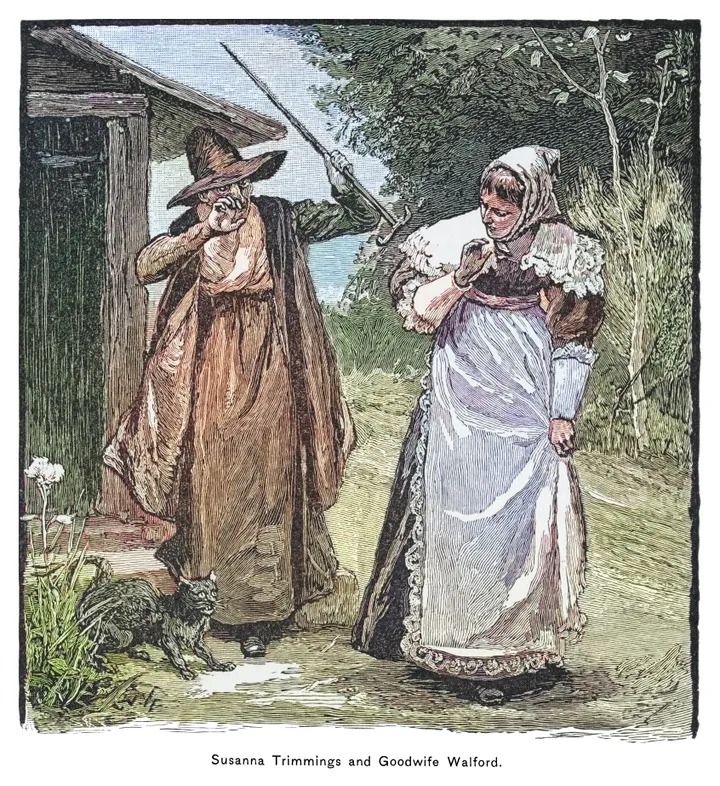
For many on the right, including Vance, the bond women share with their cats is still seen as a threat, says Corey Wrenn, a senior lecturer in sociology at the University of Kent and author of A Rational Approach to Animal Rights.
“It poses a direct challenge to the unfair dynamics traditionally enforced by patriarchy, which has historically sought to undermine human-animal bonds through male-dominated institutions,” Wrenn explains, mentioning the stereotype linking lesbians with cat ownership (a stereotype with some basis in reality).
“In general, cat ownership remains strongly associated with women and a choice to be child-free, which many still view as unconventional and unnatural,” she adds.
However, Vance’s comments about cat ladies might seem outdated, particularly to younger generations. Nowadays, it’s common to hear about “cat dads” and “cat parents” who lavish affection on their pets.
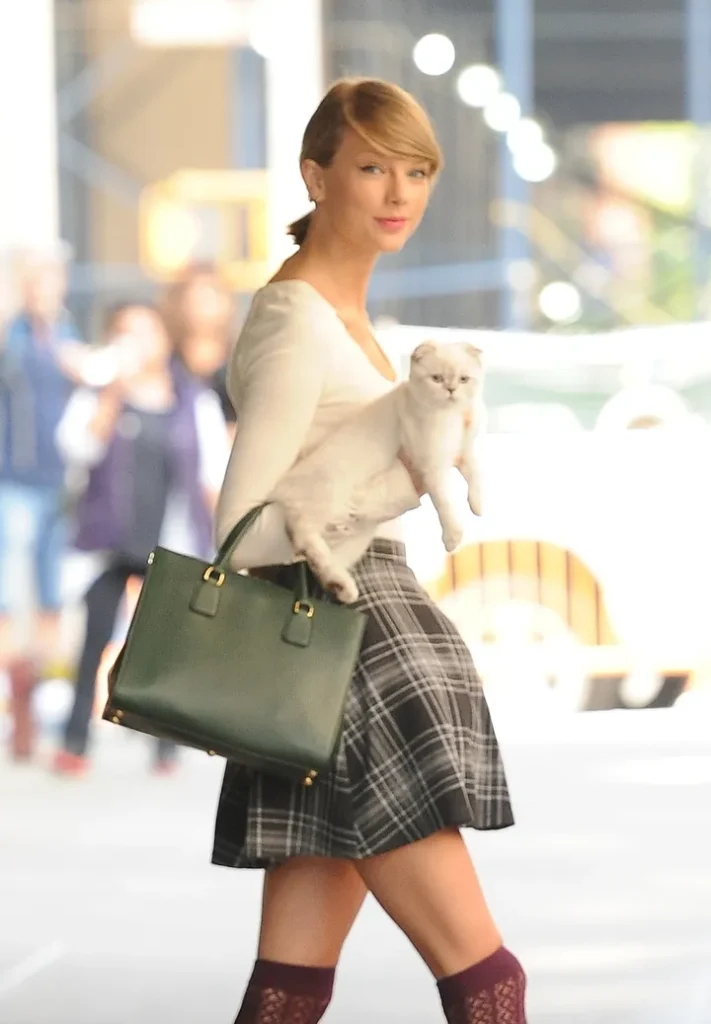
For many on the right, including Vance, the bond women share with their cats is still seen as a threat, says Corey Wrenn, a senior lecturer in sociology at the University of Kent and author of A Rational Approach to Animal Rights.
“It poses a direct challenge to the unfair dynamics traditionally enforced by patriarchy, which has historically sought to undermine human-animal bonds through male-dominated institutions,” Wrenn explains, mentioning the stereotype linking lesbians with cat ownership (a stereotype with some basis in reality).
“In general, cat ownership remains strongly associated with women and a choice to be child-free, which many still view as unconventional and unnatural,” she adds.
However, Vance’s comments about cat ladies might seem outdated, particularly to younger generations. Nowadays, it’s common to hear about “cat dads” and “cat parents” who lavish affection on their pets.
